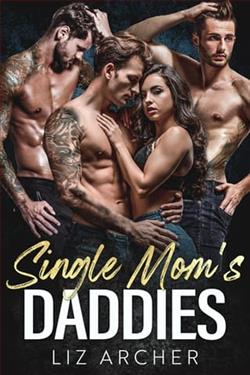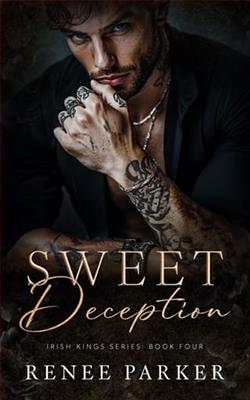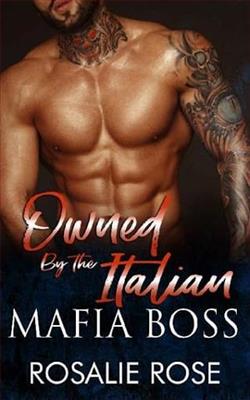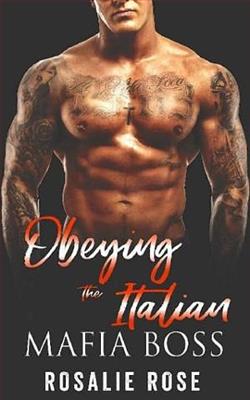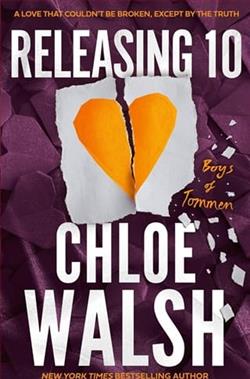Page 123 of These Summer Storms
The first words he’d ever spoken to her. As though if the answer were no, he would make it right.Liar.
No one had been with her. And no one was now, either.
“You’ve been playing me from the start. From before the start, when you paid Griffin to leave me.” She stopped, giving him time to speak. When he didn’t, she said, “This is the part where you apologize.”
He took another step toward her, stopping just far enough away that she didn’t feel confined, but close enough that if she reached for him, she could touch him.
She searched for something that would stop her from doing just that. Found it. “How much was I worth?” He shook his head, looking away, avoiding her, and that did the trick, restoring her anger. “Tell me,” she said, raising her voice, willing him to give her the fight. “How much to give me up? What was the market value of my future happiness?”
The question hung between them for a bit, long enough that she thought he might not answer. And then he looked back at her, and she recognized the anger in his own gaze. “You want to know?”
“I do.”
“Not enough.” The words were clipped and tight, soft where hers had gone loud. “I met him certain that it was a waste of time. No way would someone take your dad’s money—whenyou’dchosen them. The girl who took on Storm and won? I didn’t know you, but I knew you were talented and decent and brave as fuck. And I knew that anyone you loved would tell Franklin to get bent rather than leave you. It was unfathomable to me that Griffin would even hear me out.”
“Must have been a lot of money.”
“There’s no amount of money worth it.”
The pronouncement took the wind out of sails, a verbal heave to.
“Tell me something,” he said.
It felt like a trap. “Why would I tell you anything?”
He shrugged. “Might be fun to speak the truth.”
“I’ve never found that to be the case,” she retorted, and they both would have laughed if it didn’t feel so serious.
“Did you love him?”
The question surprised her.Love.What a strange word. Sure, people used it all the time—I love that restaurant, I love those earrings, I love that movie, that song. I love my kid, my dog, my sister, my mom(now it was getting into dangerous territory). But love wasn’t the kind of thing that she’d grown up with. Elisabeth never referenced it; admitting to love would’ve felt as exposing to Alice’s mother as attending a New York Public Library gala in the nude.
And her father…well, he’d never had time to tell them anything but what he expected them to do.
Alice wasn’t a monster. She had experienced love. She loved Gabi unconditionally. Roxanne. Her students. Her art. And she wouldn’t be here on this island if she didn’t love her family in all the weird ways they allowed themselves to be loved.
But Griffin? He’d been charming and free and so different from anything that had been even possible for her when she’d imagined her future. A person who embraced life and emotion and never tried to tell her what to do, so different from everything she’d grown up with, she’d told herself it had to be love.
But she’d forgotten the most important part.
“I loved what he represented,” she said, finally. Jack’s attention didn’t waver, but he didn’t speak, so she added, “He was not my dad. He was the antithesis of my dad. He made me feel”—she paused—“ordinary.”
“Right there—that’s why I should have destroyed him when I had the chance.” Her eyes were wide on his as he spoke, his anger palpable. “There are many things that keep me up at night—any number of which I will spend a lifetime apologizing for; but that is not one of them. I will never apologize for paying that asshole to get out of your life. The only thing I regret about it is that I didn’t end him as well as your engagement. Don’t you ever let yourself feelordinaryagain.”
Oh.“You didn’t even know me.”
“You’re right. That was before.” Anger had slid into fury. “Now, I do know you. And if I can muster up another emotion for that asshole, it would be gratitude, because if he’d been a better man, we wouldn’t be here now.”
She was having trouble breathing. “I don’t want you to pity me.”
He closed the distance between them, so she could feel the heat of him. “Alice, if I pitied you, I would be able to keep my hands off of you.”
The words came out desperate, like he ached. Like she ached. One of his hands came to her waist, fisting her dress, and she came off the edge of the desk willingly, toward his heat and the scent of him—like a shipwreck. His voice went lower, darker. “Tell me some more of that truth you’re trying out.”
She looked at him for a long moment, those eyes that seemed to see everything, that marble face that made him look like a superhero—stern jaw, straight nose, and those cheekbones that were stupidly perfect. He was all wrong. Too handsome, too strong, too sharp, saw too much.
Too dangerous. And yet.









